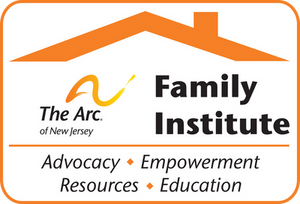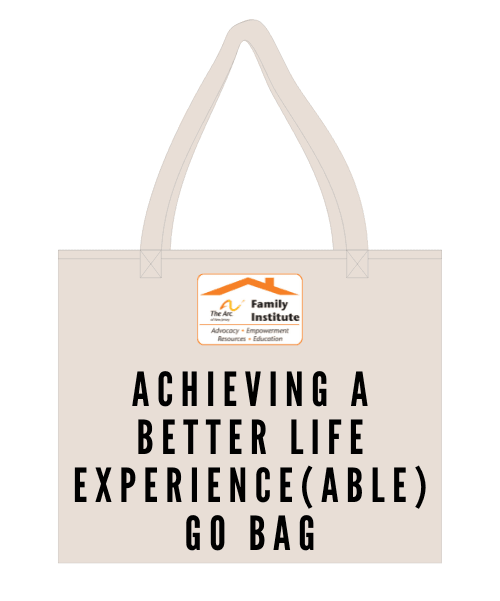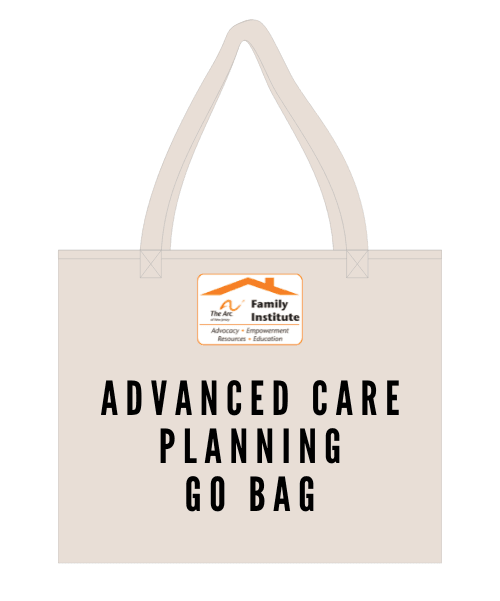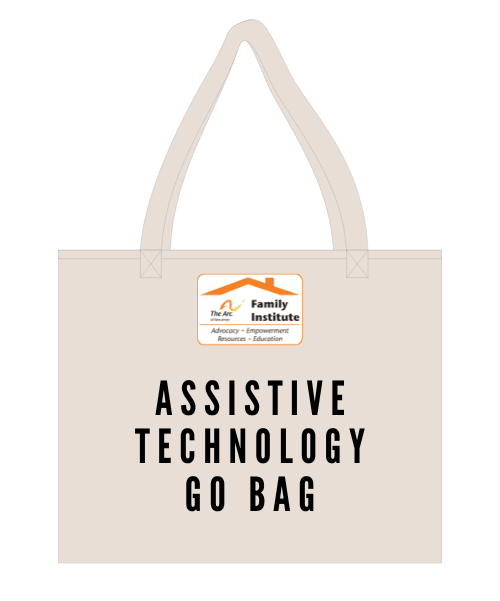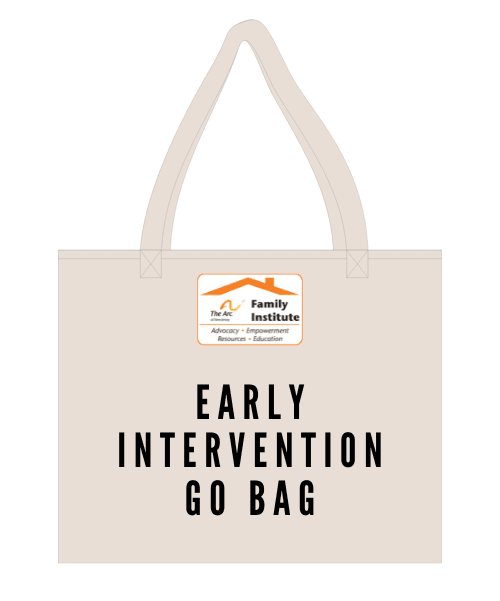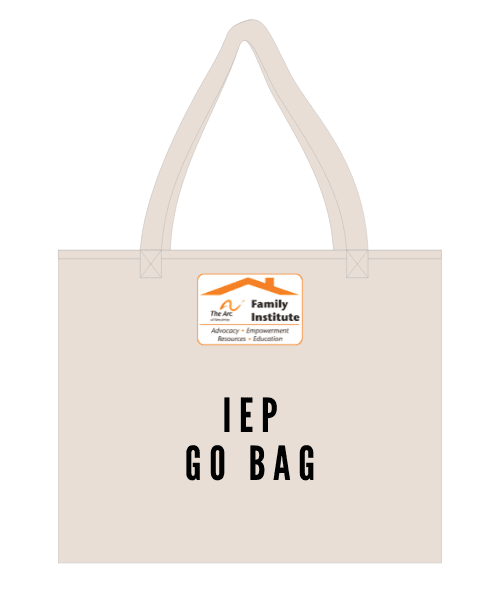What You Need When You're Preparing For the Future
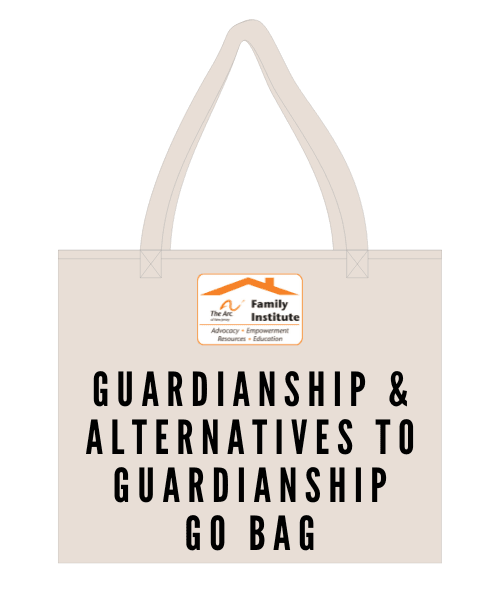
At 18, all individuals, including those with intellectual and developmental disabilities, reach the legal age of majority. This means that a parent can no longer make decisions legally on behalf of their children. Most people with intellectual and/or developmental disabilities can manage their own affairs with assistance and guidance from others, such as family and friends. If guardianship is necessary, it should be tailored to the person’s needs.
- Read more of The Arc's position on Guardianship HERE.
- Guide - Guardianship of the Person: Duties and Responsibilities
- Guide - Guide to Guardianship Reporting Forms
Families considering guardianship should learn more about all the options before making a final decision. For additional information read The Arc of New Jersey Family Institute’s: A Guide to Guardianship & Alternative Options For People with Intellectual and Developmental Disabilities and A Guide To Supported Decision-Making.
Pro Se
Pro se means "without a petitioning attorney". The proposed guardian represents himself or herself in court. Pro Se Forms and instructions can be found HERE.
- Things to think about before you represent yourself in court
- Definitions of words that may be used in the pro se packet
- How to file a guardianship action with the county surrogate
- Interpreting Services - The New Jersey Judiciary provides court-interpreting services. If you need an interpreter, notify the court as soon as possible.
Department of Human Services, Bureau of Guardianship Services (BGS)
Establishing guardianship is a legal process, and many families turn to the Bureau of Guardianship Services at the Department of Human Services for help with the process. BGS is responsible for processing and tracking guardianship actions for people served by the Division of Developmental Disabilities (DDD) who have been evaluated according to state law and determined to require a guardian. BGS is only able to serve individuals who have been determined by DDD, through its application process, to be eligible for its services.
Bureau of Guardianship - Fact Sheet
Resources:
- Guardianship Support/Guardianship Monitoring Program
Government is responsible for ensuring that guardians understand the significant authority and responsibility of guardianship, and for monitoring the health and well-being along with the finances of every incapacitated person under the care of a legal guardian. It is the only way to eliminate opportunities for abuse. The New Jersey Judiciary provides guardianship support through its Guardian Essentials and the Guardianship Monitoring Program.
- Plan/NJ:
PLAN/NJ assists in the future care planning of individuals with various mental health and developmental disabilities in New Jersey by working directly with parents and family members to answer the question, "Who will care for my loved one when I am gone?"- PLAN/NJ Professional Sponsorship Directory – Attorneys and Financial Advisors/Planners
- PLAN/NJ Professional Sponsorship Directory – Attorneys and Financial Advisors/Planners
- SCARC Guardianship Services, INC.: SCARC Guardianship Services, Inc. accepts the appointment of a Guardian for adults with developmental disabilities who need a readily available guardian to act on their behalf. The organization serves as the sole guardian, co-guardian, or personal advocate for the individual.
- Where Human Rights Begin: Human Rights and Guardianship for Individuals with Developmental Disabilities - A GANJI Publication
- The Arc and the Center for Future Planning:
The Center for Future Planning aims to support and encourage adults with I/DD and their families to plan for the future. The Center provides reliable information and assistance to individuals with I/DD, their family members and friends, professionals who support them, and other members of the community on areas such as person-centered planning, decision-making, housing options, and financial planning.
- Transferring Guardianship Across State Lines
- Hinkle, Prior and Fisher
The Attorneys at Hinkle, Prior & Fischer can advise you and your family regarding the establishment of appropriate levels of surrogate decision-making and responsibility for you and your loved one with an intellectual and developmental disability.
- Self-Advocacy Guide to Guardianships
- Palliative and End of Life Care: What is an Advance Directive
- Sample healthcare power of attorney & Advance Directive forms
- Prepare Your Child for Age of Majority and Transfer of Rights
- Low Cost Guardianship Services Provided By Community Health Law Project
- Spanish Resources
- Surrogate Roster
- South Jersey Legal Resources
- Representing Clients with a Range of Decisional Capabilities and slides
- You Can Make a Difference - Defending Against or Terminating Guardianship and slides
Information on Supported Decision-Making
Supported Decision-Making is a way people can make their own decisions and stay in charge of their lives, while receiving any help they need to do so.
- National Resource Center for Supported Decision-Making
- Supported Decision-Making Teams: Setting the Wheels in Motion
- Guide -The Right to Make Choices: International Laws and Decision-Making by People with Disabilities
- Supported Decision Making and Understanding My IEP Sample* Supported Decision Making Form for IEP Meeting
- Pairing Advance Directives with Supported Decision-Making
- A Guide to Alternatives to Guardianship
- Prepare Your Child for Age of Majority and Transfer of Rights
- Spanish Resources
